
Magento vs. osCommerce: Which is Better?
Looking for the best ecommerce platform for your online store? Magento vs. osCommerce compares two of the top ecommerce storefront service providers. Both offer unique features and benefits for your ecommerce business.
This article will cover the key features, customization options, ease of use, and community support of both platforms.
Key Takeaways
-
Evaluate Magento and osCommerce to determine the right fit for your store.
-
Discover Magento's advanced customization and SEO versus osCommerce's simpler options.
-
Learn about Magento's extensive community support compared to osCommerce's basic offerings.
-
Explore case studies of businesses thriving with Magento.
-
Get insights on transitioning from osCommerce to Magento using specialized tools.
-
Review a detailed ecommerce comparison over three years for both platforms.
What is osCommerce?
“osCommerce is an open-source ecommerce platform. It allows businesses to create and manage online stores.”
Launched in 2000, it offers a wide range of features. These include basic customization options, SEO tools, and a basic interface. Store owners can extend its functionality with various add-ons.
The osCommerce community provides support and resources. This helps users optimize and customize their stores. The platform is built on PHP, making it easy to modify.
Compared to Magento, osCommerce is simpler to use. It suits small-sized businesses. Its open-source nature ensures flexibility and control. However, for mid and high-end e-commerce solution seekers, Magento is a superior solution.
Magento’s advanced features, scalability, and customization capabilities help build distinctive storefronts. Extensive third-party integrations and comprehensive support ease long-term functioning.
Comparing Magento vs OsCommerce
| Aspect | Magento | OsCommerce |
|---|---|---|
| Ease of Use | More complex. Requires technical expertise. | Simpler to use, even for non-technical users. |
| Customization | Magento allows high customizability for every aspect of the storefront design. It has a flexible coupon/promotions engine and supports multiple languages and currencies. Its architecture enables developers to extend any core functionality. Multiple extensions are available. | Fewer customization options and add-ons. |
| SEO | Enhnaced built-in SEO features and optimizations. | Basic SEO, relies more on extensions. |
| Scalability | Modern, layered architecture that leverages caching, indexing, and content delivery networks. Easily scales to handle large product catalogs and high-traffic. | Less suitable for very large, high-volume stores. |
| Community & Support | Large, active community of developers and users. Offers Dedicated support. | Smaller community and less official support. |
| Pricing | Available in free, open-source version. Paid enterprise edition is also available with more features. | Completely free and open-source. |
Magento Adoption Case Studies
1. Paul Smith (fashion brand) chose Magento for its advanced features and witnessed a 16% revenue increase. They installed Klevu search on top of Magento, witnessing a 31% increase in ecommerce conversion rate over an 8-week period.
2. Retail Apparel Group used Magento's flexibility to manage multiple brands on one platform. Conversion rates increased by 25%.
3. Nestle Gerber moved to Magento to scale for growth. The migration helped them smoothly handle spikes in traffic and orders.
4. Leveraging Magento, Helly Hansen has increased 20% site traffic, 37% mobile traffic, and 40% overall revenue.
5. Cox & Cox valued Magento's extensive community for support, extensions, and developer availability. They won the "Best Magento Upgrade" award for their migration from Magento 1 to Magento 2, increasing AOV by 26%.
How to Migrate from osCommerce to Magento?
Merchants seek better e-commerce opportunities by migrating from osCommerce to Magento 2. The default Magento import tools lack functionality. Using them requires recreating many areas manually. However, many import/export extensions are in place to help with easier migration.
Firebar’s Improved Import & Export extension adds missing import capabilities. It supports all entities and automates data transfers. It solves attribute standard differences between platforms. The extension connects your Magento 2 store to external systems like ERPs, CRMs, and databases.
Method 1: Migrate via Data Files
-
Export products, orders, customers, catalogs, and entities from osCommerce as XML/CSV files.
-
In Magento 2 admin, create an import job: System > Improved Import/Export > Import Jobs.
-
Configure General Settings: specify job title, and schedule automatic updates if needed.
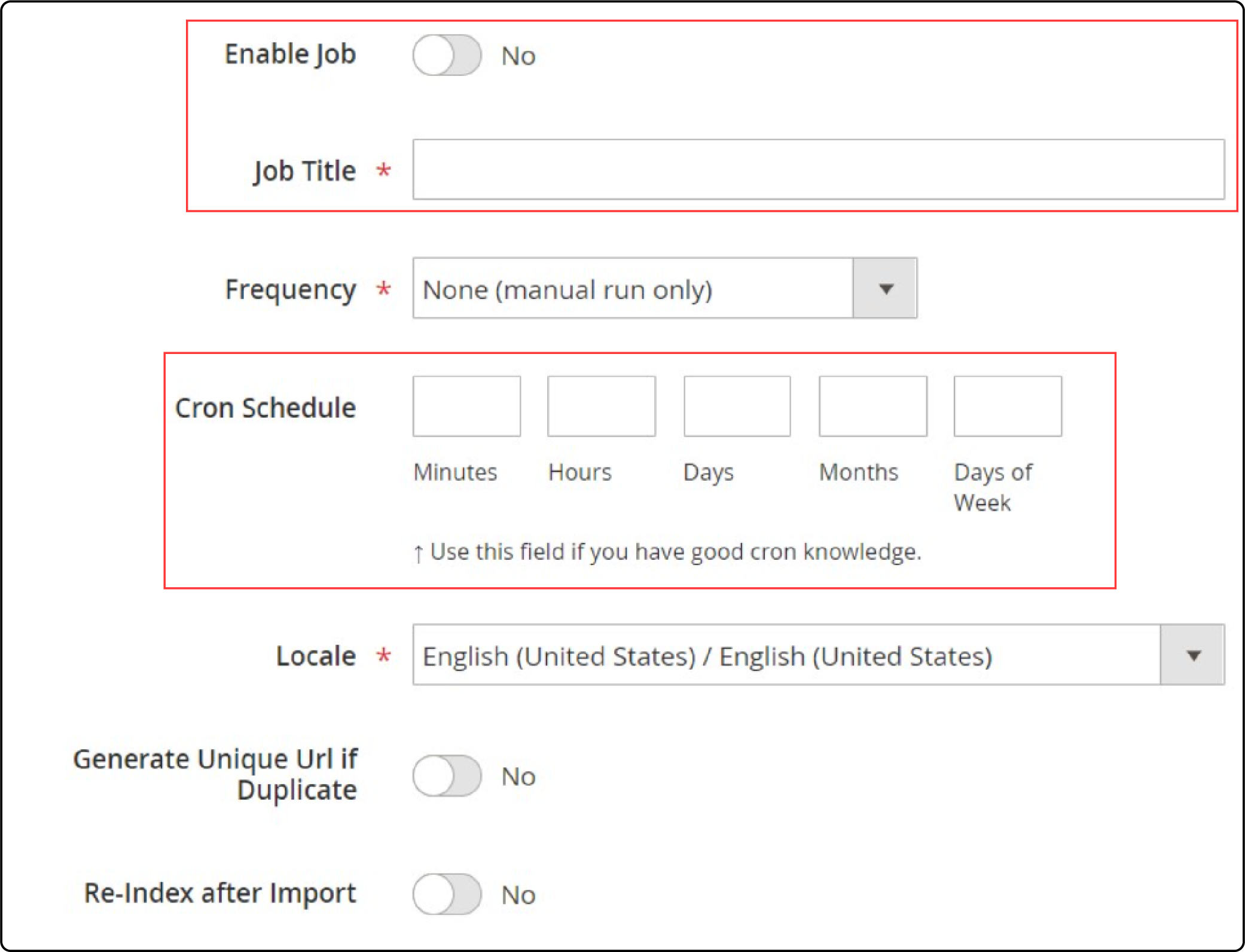
- In Import Settings, select an entity to migrate (products, categories, customers, pricing, orders, attributes).

- In Import Behavior, choose the import behavior option, validation strategy, and separators.
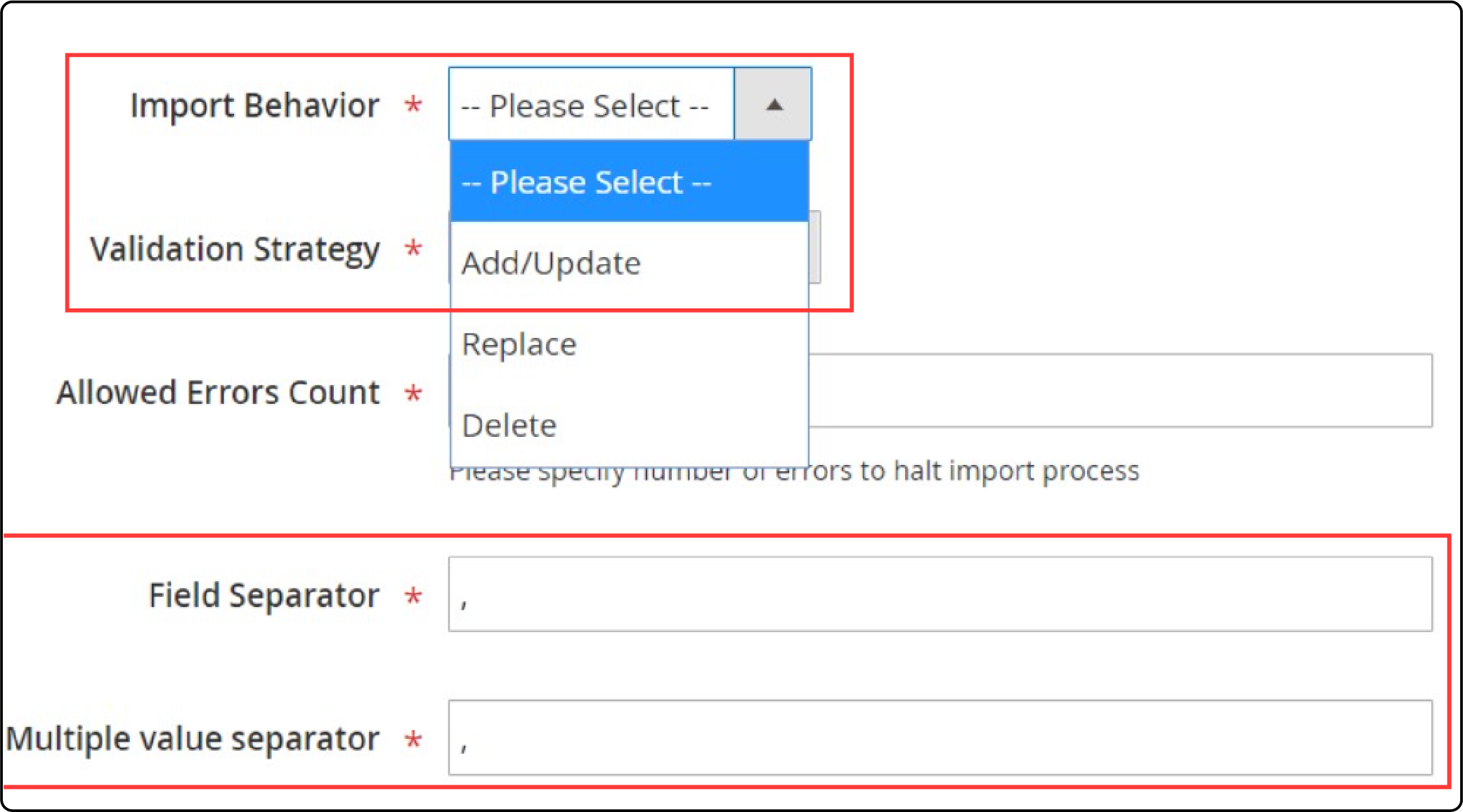
- In Import Source, choose the file type and source, configure parameters, and upload/validate the file.
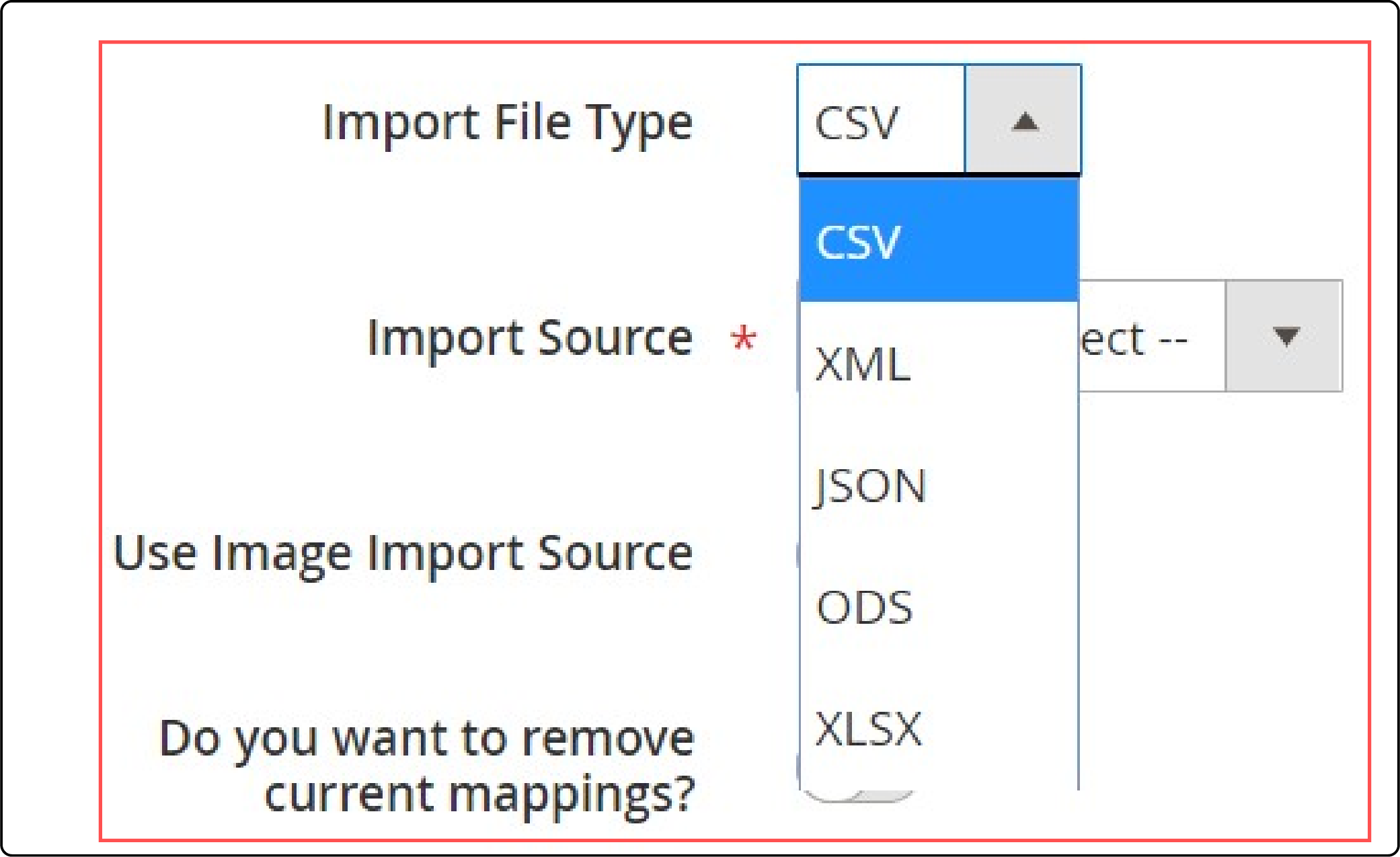
- Apply mapping to match osCommerce and Magento 2 attributes.
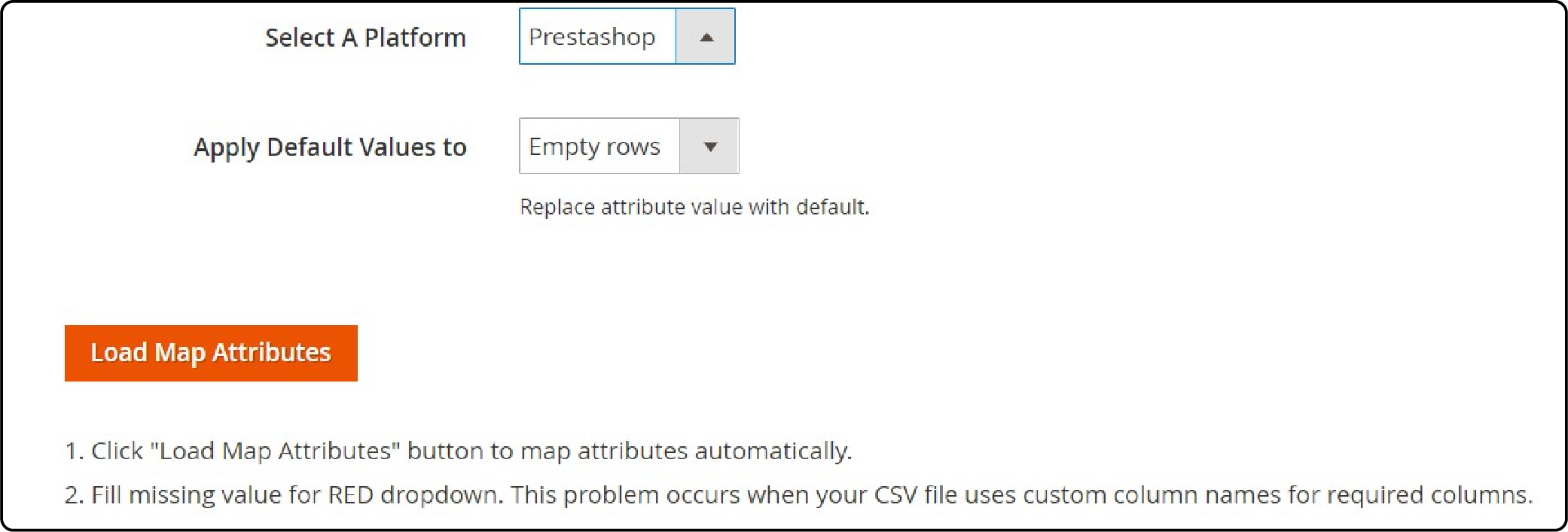
- Create separate import jobs for each entity to complete osCommerce to Magento 2 migration.
Method 2: Migrate via API Connection
-
Create a new import job in Magento 2 admin backend.
-
In General Settings, specify job title and schedule updates.
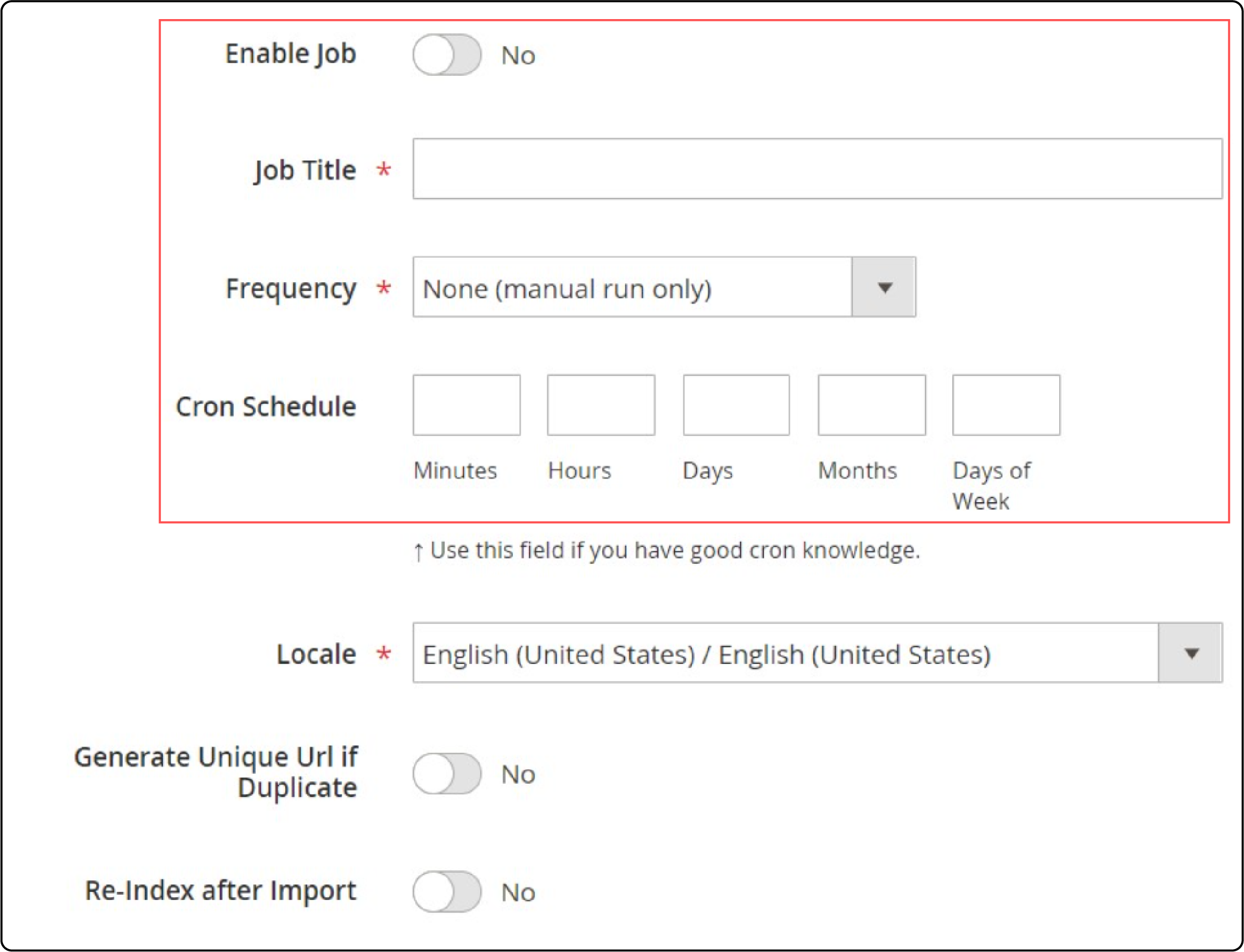
- In Import Settings, enable API transfers by setting 'Use API' to 'Yes.' Select entity.
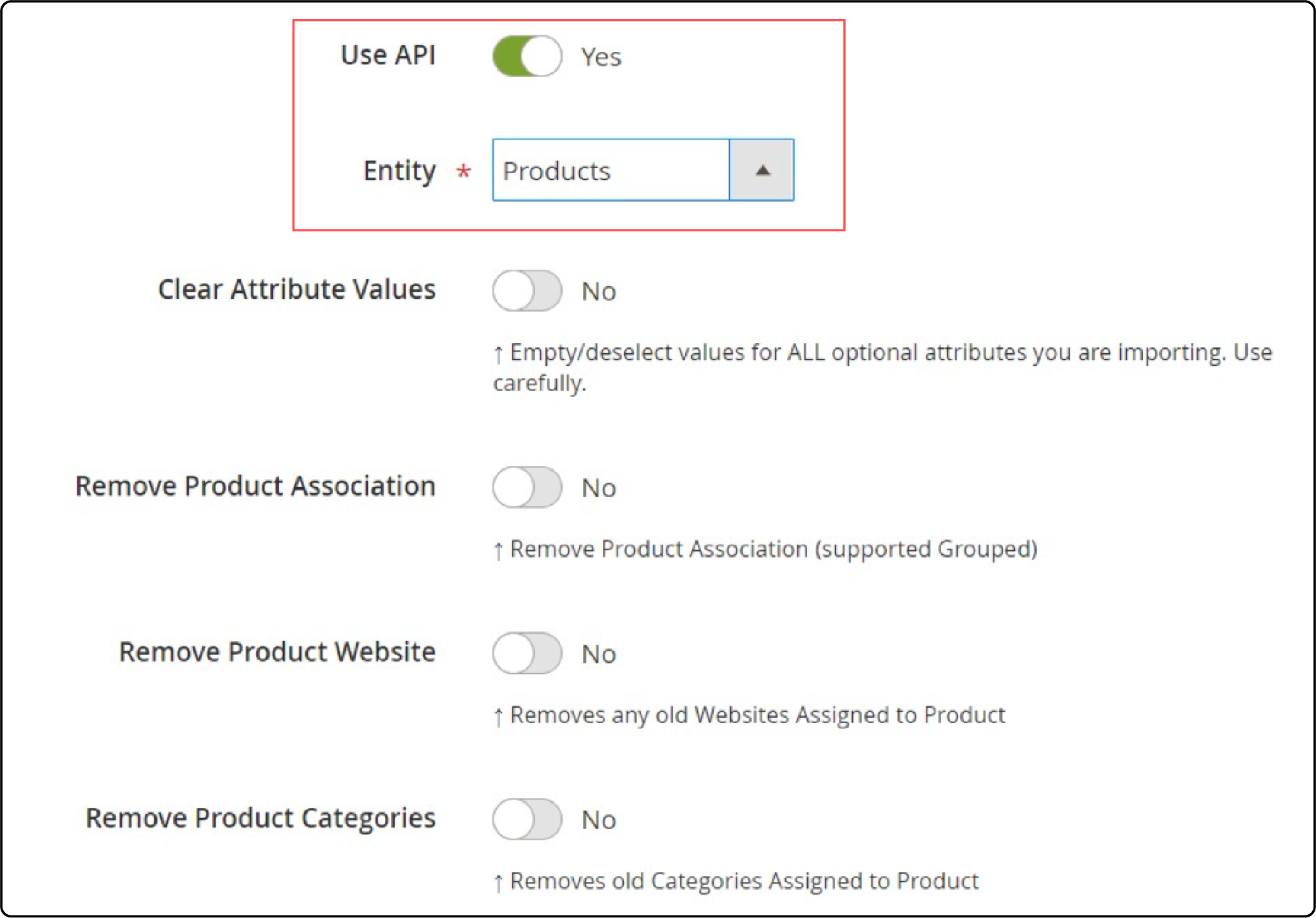
- In Import Behavior, choose behavior, validation strategy, and separators.
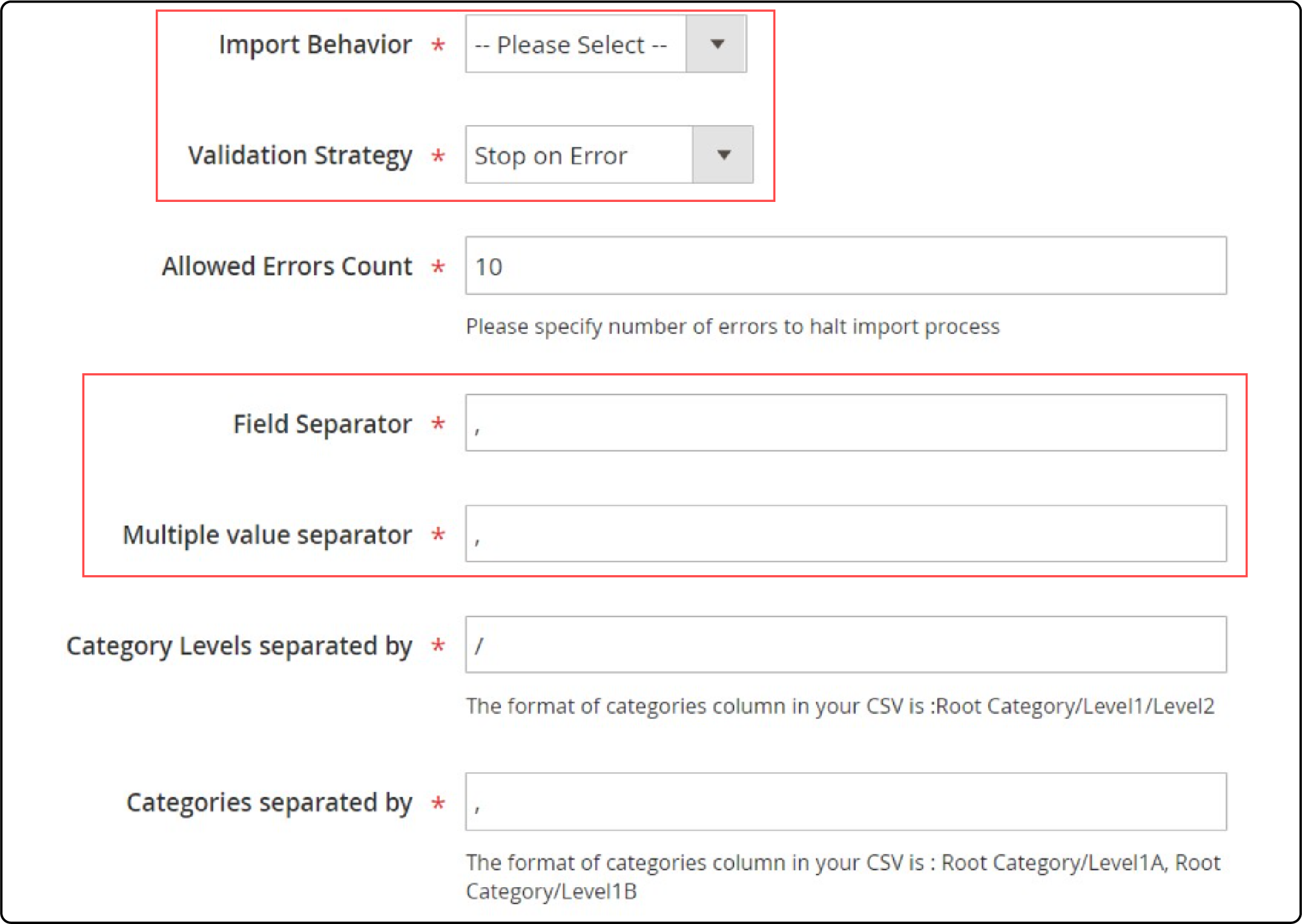
- In Import Source, select XML/JSON file type and REST/SOAP source. Configure parameters.
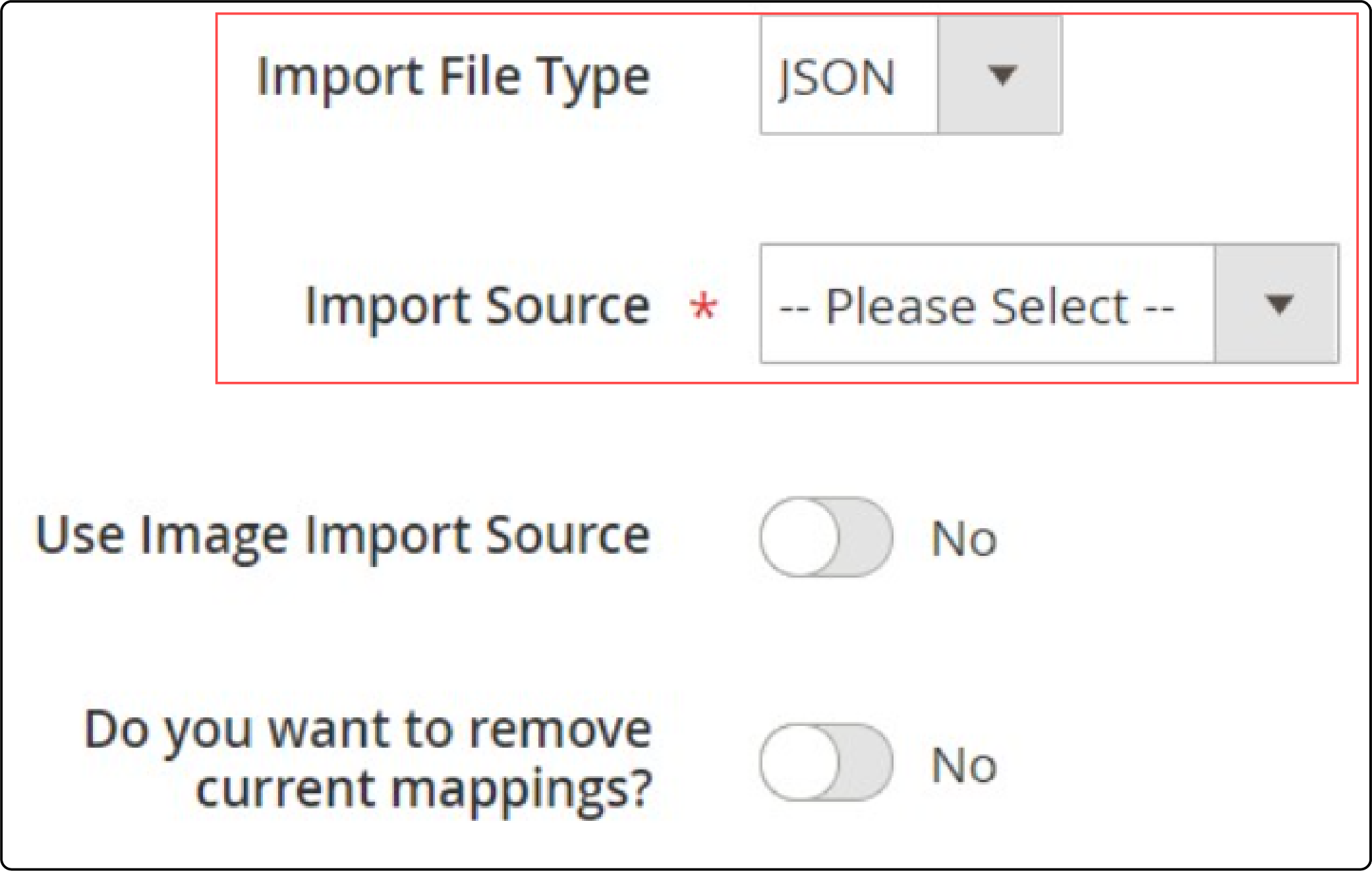
- Apply attribute mapping between osCommerce and Magento 2.
- Configure separate import jobs for each entity migrating via API.
Estimating Total Cost of Ownership: Magento vs. osCommerce
Here is a hypothetical breakdown comparing the total costs of running Magento vs osCommerce stores over a 3-year period:
1. Licensing Costs
-
Magento Open Source: Free
-
Magento Commerce: $66,000 - $375,000 (based on annual revenue)
-
osCommerce: Free and open-source
2. Hosting Costs
-
Magento: $300 - $12,000 (VPS/dedicated server required)
-
osCommerce: $60 - $900 (can run on shared hosting)
3. Development & Customization
-
Magento: $15,000 - $201,000 (extensions, custom coding, integrations)
-
osCommerce: $3,000 - $45,000 (limited extensions, more custom coding)
4. Support & Maintenance
-
Magento: $12,000 - $55,000 (updates, security, performance tuning)
-
osCommerce: $3,000 - $15,000 (community support, limited maintenance)
5. Total 3-Year Cost Estimate
-
Magento Open Source: $27,300 - $268,000
-
Magento Commerce: $159,000 - $1,086,000
-
osCommerce: $9,060 - $91,700
Note: Over 3 years, Magento Commerce is the most expensive option due to licensing fees and higher development/support costs. Magento Open Source is more cost-effective for smaller stores.
osCommerce remains the cheapest overall, but it lacks advanced features and official support like Magento.
FAQs
1. What are the main differences between osCommerce and Magento?
Magento and osCommerce are powerful yet distinct. Magento offers robust features and functionalities. OsCommerce is an open-source platform. Both cater to diverse ecommerce store needs.
2. Can osCommerce meet the needs of your business?
OsCommerce can also meet varied business needs. It supports basic e-commerce platform needs. Known for its large community, it aids beginners. OsCommerce offers a user-friendly setup for small stores.
3. How does Magento support businesses with complex needs?
Magento is built for scalability and customization. It supports businesses with complex needs effectively. Magento extensions enhance its core functionalities. Magento enterprise is ideal for larger operations.
4. What advantages does Magento provide over osCommerce?
Magento provides advanced search engine optimization tools. It features a comprehensive Magento support team. Magento community edition suits small to medium businesses. Magento enterprise edition caters to larger businesses.
5. Why consider Magento as your ecommerce solution?
Magento stands out in customization and security. Known as the Magento community edition for startups. Magento enterprise serves well for extensive needs. The paid version, called Magento, offers premium features.
6. How do the features of osCommerce compare to Magento?
OsCommerce vs. Magento shows simpler setup vs. complexity. OsCommerce offers basic shopping cart functionalities. Magento is much more feature-rich and versatile. Both platforms have a community of users and developers.
7. Which platform is better for an overall e-commerce store?
Magento is a powerful choice for diverse needs. Magento also offers scalability and integration. It exceeds osCommerce in functionality and support. Magento is ideal for those upgrading from simpler platforms like osCommerce.
Summary
Contrasting Magento vs. osCommerce, Magento is a much better, scalable, and feature-rich solution. Here are the key distinctions between the two e-commerce platforms:
-
Magento excels with extensive customization and robust SEO, ideal for large stores. OsCommerce is simpler, perfect for smaller businesses, but offers fewer customizations.
-
Magento has a large, active community and dedicated support. osCommerce offers basic community support and remains free.
-
Paul Smith enhanced conversions significantly with Magento. Retail Apparel Group, Nestle Gerber used Magento for scalability and handling high traffic.
-
Magento Commerce, though costly due to licensing and support, provides advanced features. Magento Open Source is more affordable for smaller setups. osCommerce is the most budget-friendly but less feature-rich.
Choose the platform that aligns best with your business size and goals. Expert Managed Magento Hosting services can further elevate your store’s overall shopping experience.




